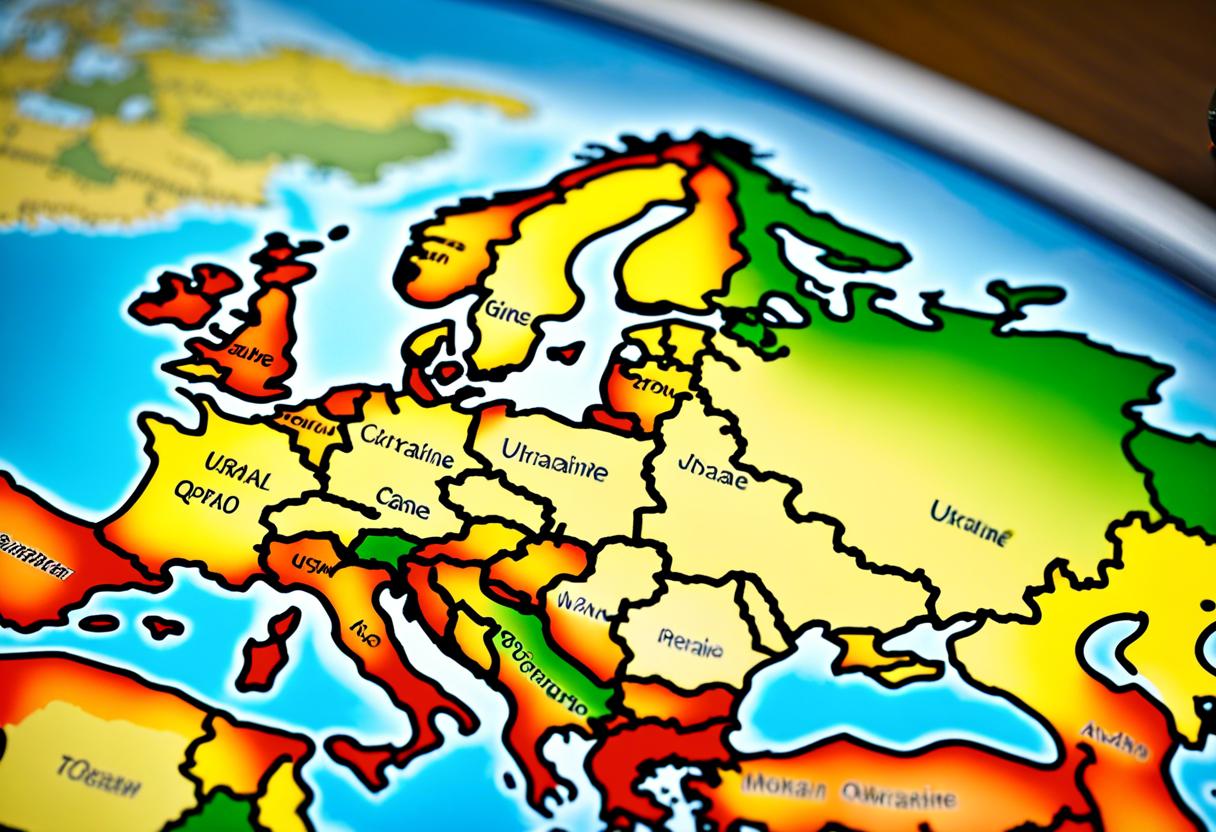Ukrainian president, Volodymyr Zelenskiy has called on western allies to speed up their decision-making process for military aid to Ukraine. He urged them on Monday to play a more direct role in the conflict, including providing assistance in blocking Russian missile attacks on Ukraine and allowing Ukraine to use their weapons against the accumulating enemy military equipment near its borders. This plea highlights the intense stress Zelenskiy’s troops are experiencing across over 1,000km of front lines in the country’s northeast, east, and south.
Zelenskiy, clad in his signature khaki attire, described the current battleground to Reuters as one of the toughest since Russia’s full-blown invasion commenced in February 2022. In recent times, there has been an influx of Moscow’s forces into the northeastern part of Ukraine, putting further strain on Kyiv’s already overstretched defenses. Simultaneously, Russia has managed to capture areas in the eastern Donbas region amid intense combat. Zelenskiy pointed out that the higher frequency of conflicts in the country’s east, particularly in the Donbas direction involving Kurakhove, Pokrovsk, Chasiv Yar, have largely gone unnoticed. However, he claimed to have the situation to the north of Kharkiv under control.
Zelenskiy, 46, voiced these concerns on the fifth anniversary of his presidency. Due to the ongoing invasion, he has not been able to participate in elections as martial law is being enforced. He reiterated his appeals for swifter military support from the United States and other allies. Though the US has recently sent weapons and ammunition aid, the shipment was delayed for months due to political disputes within the country. Zelenskiy lamented the slow pace of decision-making, claiming that decisions were often delayed by approximately a year. He advocated for a paradigm shift, stating that progress often seems to be one stride forward followed by two steps backward.
President Zelenskiy has voiced his desire for his allies to have a more direct role in the conflict, despite understanding their reluctance to incite Russia’s ire. Regarding this situation, he has stated that fear of escalation is a common feeling amongst all and that sadly, Ukraine bearing the violent brunt of the conflict seems to have become normalised.
In a bid to protect Ukraine, Zelenskiy has proposed that NATO member states’ military could intervene to stop the onslaught of Russian missiles launched into Ukrainian territory. He noted that amidst the broader conflict, Russia has targeted Ukraine with a barrage of missiles and drones, rendering air defence a vital need. “With a Russian force of 300 planes over Ukraine’s territory, we need around 130 to adequately retaliate,” he stated, referring to the anticipated delivery of USA-made F-16s.
Zelenskiy reiterated that even if allies are unable to provide immediate military support, they could engage threats from neighbouring NATO countries to deter Russian missiles.
Alongside this, he revealed that talks are underway with global partners to utilise their weaponry to target Russian military equipment both at the border and within Russia. While progress in this area remains lacking, Zelenskiy remains hopeful.
In response to such potential actions, Russian President Putin is expected to perceive them as provocative. Insisting on Russia’s victimisation post the 1989’s fall of Berlin Wall, Putin frames the war as Russia’s fight against a failing and corrupt West infringing on Russia’s sphere of influence, including Ukraine. Such a view is dismissed by Ukraine and the West, who argue that the invasion is an unprovoked territorial grab.
Zelenskiy emphasised that he hasn’t gone against agreements made with allies about foreign weaponry use within Russia, citing the potential risk involved. Furthermore, international discussions excluding Russia are set to take place in Switzerland next month, with hopes to unite and strengthen dissent towards Moscow. Putin, however, has shared his belief that these talks may morph Ukrainian calls for withdrawal into an ultimatum for Russia, a tactic he’s sure to resist. It is crucial, Zelenskiy pointed out, to engage as many nations in the discussions as possible.
“Russia will be held accountable by the collective global community, not just Ukraine, ” remarked Mr Zelenskiy. This assertion, however, doesn’t necessarily mean that Russia will immediately accede, but it’s crucial that control of the situation remains with us.”
The recent attack in Kharkiv implies a harsher future unless rapid intervention is made by Ukraine and the West.
Beijing’s decision to participate remains uncertain. Yet, following their recent meeting in China promising a fresh wave of alliance deliberation, president Xi Jinping and Mr Putin are potentially causing unease for the US.
“The attendance of China at the summit bears significance,” stated Mr Zelenskiy. He noted that post-summit, it would become plain who desires to cease hostilities and who wishes to maintain a firm bond with Russia.
He attempted to allay fears regarding any potential success for Republican candidate, Donald Trump, in the forthcoming November elections which could bring challenges for Ukraine. Trump, known for being cautious of aid to Ukraine and emphasizing “America First” policies, has raised worries among supporters of Ukraine.
Mr Zelenskiy, previously a professional humourist, deflected judgement on his leadership to others, instead expressing his appreciation for the persistence and resilience displayed by the Ukrainian populace in tough times.
Despite experiencing recent drawbacks, he emphasised that a triumph in the war for Ukraine could still be feasible.
“In my view, we need to continue persevering with our efforts, hopefully resulting in victory”, he shared. “The concept of ‘victory’ might currently be met with scepticism – I appreciate the hardships, as it’s a long-term process.” – Reuters
(c) Copyright Thomson Reuters 2024

